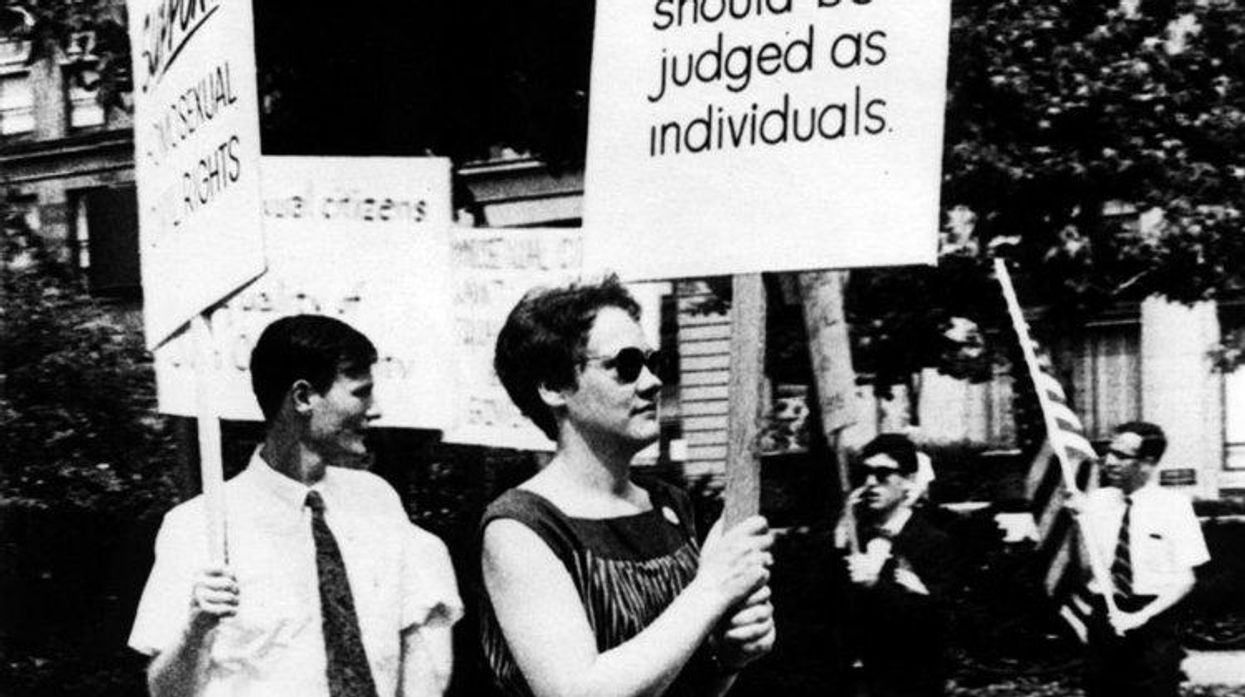During this year's Pride month we'll be sharing weekly history lessons about prominent LGBTQ figures or notable events that have fed into and furthered the fight for LGBTQ rights. In this current presidential administration we find our community under attack, with attempts to strip away hard-won rights and a leader that won't even recognize June as national Pride month. It is imperative to remember where we came from if we want to know where we're going.
Though the Stonewall Riots of 1969 acted as the catalyst that would ignite the modern gay rights movement, groundwork was being laid long before the first brick was thrown.
Related | The Legacy of Pride: Bayard Rustin
Born in 1932, Barbara Gittings heard the term "homosexual" for the first time in her life when she was rejected for membership to the National Honor Society when a teacher suspected her of "homosexual inclinations." By college she was a psychiatrist-confirmed lesbian who, with no groups or organizations to turn to, took it upon herself to research her "condition." After her obsessive research led to failing out of Northwestern, Gittings eventually moved to Philadelphia and, dressed in drag, hitchhiked to New York City on the weekends to visit gay bars.
In 1956 Gittings met with the founders of the Daughters of Bilitis, the first lesbian-centric organization in the United States. In 1958 the founders asked her to start a DOB chapter in New York City, placing Gittings in the thick of a near-silent movement. The DOB often invited doctors, ministers, and psychiatrists to their meetings to speak, even when they expected the message to be disapproving of them as queer women. "At first we were so grateful just to have people - anybody - pay attention to us that we listened to and accepted everything they said," said Gittings. "Anything that helped break the silence, no matter how silly or foolish it may look to us today, was important."
By the 1960s Gittings became a recognizable face on the picket line, lobbying for gay rights in Washington and around the country. In the early 1970s, shortly after the Stonewall riots, Gittings helped with petitioning the American Psychiatric Association to change its stance on homosexuality. In 1973 the APA withdrew its definition of homosexuality as a mental disorder.
The fervor with which she delved into libraries in search of literature on homosexuality led Gittings to push to make such literature more available. Rarely was she able to find even the slightest hints about gay men and women in her research, and when she did it was categorized under abnormal psychology with headlines mentioning "aberrations" and "perversion." Her work led to an honorary membership in the American Library Association, and the Free Library of Philadelphia naming its gay and lesbian collection for her. This Pride season when you pick up a book about LGBTQ history, remember that Barbara Gittings helped put it in your hand.






























